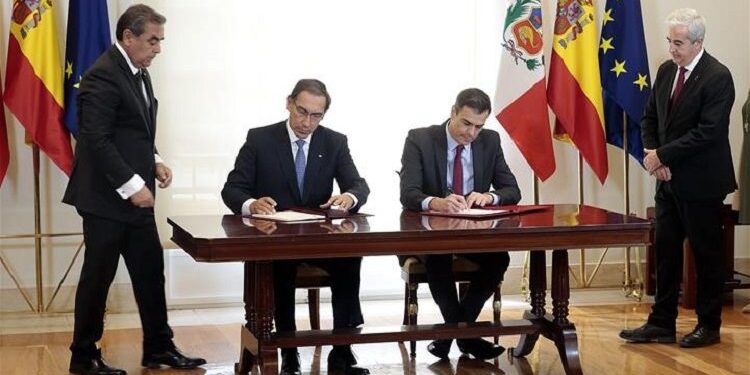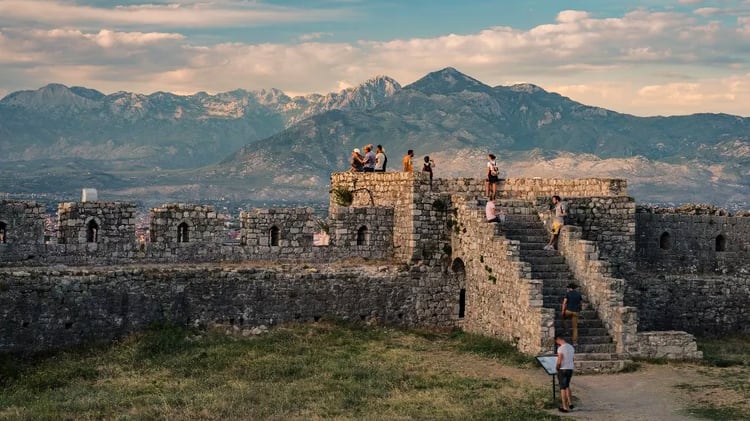The Diplomat
On March 24, the Agreement between Spain and Peru on cooperation in security and the fight against crime, signed just over four years ago in Madrid during the state visit of the then Peruvian president, Martín Alberto Vizcarra, entered into force.
The agreement, published earlier this month in the Official State Gazette (BOE), recognizes “the importance of deepening and developing cooperation in the fight against crime in its various manifestations”. The agreement will not affect matters relating to the provision of judicial assistance in criminal matters and extradition, and the competent bodies for the practical implementation of the agreement will be the Ministries of the Interior of both countries, without prejudice to the competencies corresponding to other Ministries.
The text refers to the Agreement between Peru and Spain on Cooperation in the Prevention of Consumption, Alternative Development and Control of the Illicit Traffic of Narcotic Drugs and Psychotropic Substances, in force since August 3, 1999; to the Framework Cooperation Agreement between Peru and Spain, in force since May 20, 2005, and to the Treaty on Judicial Assistance in Criminal Matters between Peru and Spain, in force since December 12, 2001. It also takes into consideration the United Nations Convention against Transnational Organized Crime of November 15, 2000, in force since September 29, 2003.
The purpose of this agreement is to frame the cooperation between the two countries, in accordance with their respective national legislations, in the field of public safety, citizen security and the fight against crime, especially in its organized forms. According to this agreement, Spain and Peru will cooperate in the fight against criminal actions, in particular terrorism, including its collaboration and financing; crimes against life and physical integrity, illegal detention and kidnapping, serious crimes against property, crimes related to the manufacture of narcotics and illicit trafficking of drugs, psychotropic substances and precursors and trafficking in persons and smuggling of migrants, illegal immigration.
Cooperation also includes organized forms of crime against sexual freedom, especially those related to minors, as well as the making, dissemination and facilitation of pornographic content involving minors; extortion, theft, trafficking and illegal trade in weapons, ammunition, explosives, radioactive substances, biological and nuclear materials and other dangerous substances; illegal financial transactions, economic and fiscal crimes, as well as money laundering, counterfeiting of money and other means of payment, checks and securities; crimes against cultural objects of historical value, as well as theft of and illegal trafficking in works of art and antique objects; theft of, illegal trade in and trafficking in motor vehicles, as well as forgery and illegal use of motor vehicle documents; forgery and illegal use of identity and travel documents; crimes committed through computer systems or Internet channels; and crimes against natural resources and the environment.
The collaboration will include the exchange of information and the provision of assistance in operational investigative activity, in accordance with their respective national legislation, with regard to the identification and search for missing persons. It will also concern the investigation and search for suspected criminals in the territory of some of the parties, the identification of corpses and persons of police interest, the search in the territory of one of the parties for objects, effects or instruments originating from the crime or used in its commission at the request of the other party; and the financing of criminal activities. The two countries will also cooperate, through the exchange of information, mutual assistance and collaboration, in the transfer of radioactive, explosive, toxic and weapons substances, the carrying out of controlled deliveries of narcotic and psychotropic substances and the transfer or transit of returned or expelled persons.
The agreement was signed in Madrid on February 28, 2019 by the President of the Government, Pedro Sánchez, and the then Peruvian President, Martín Alberto Vizcarra, during the latter’s State visit to Spain, during which seven bilateral agreements and a Joint Declaration were signed. The agreement finally came into force on March 24.







